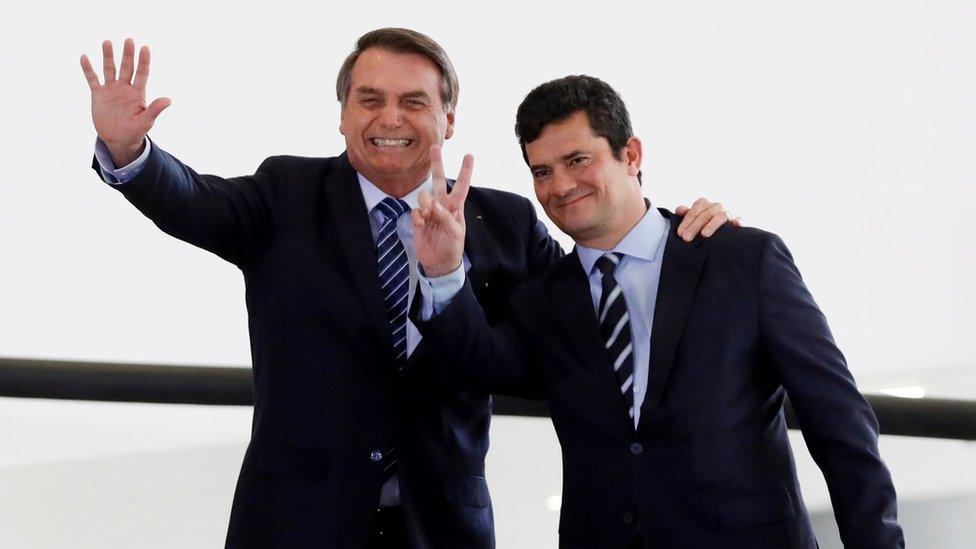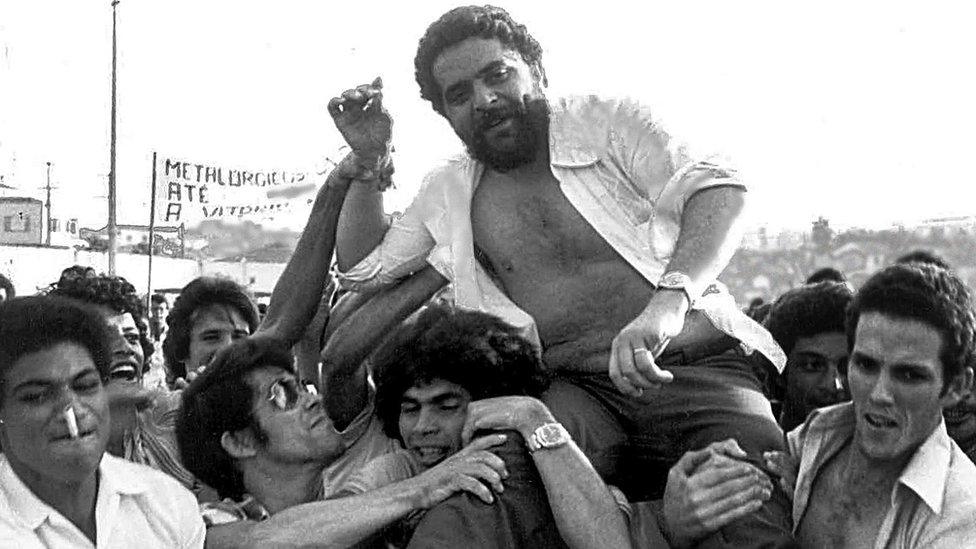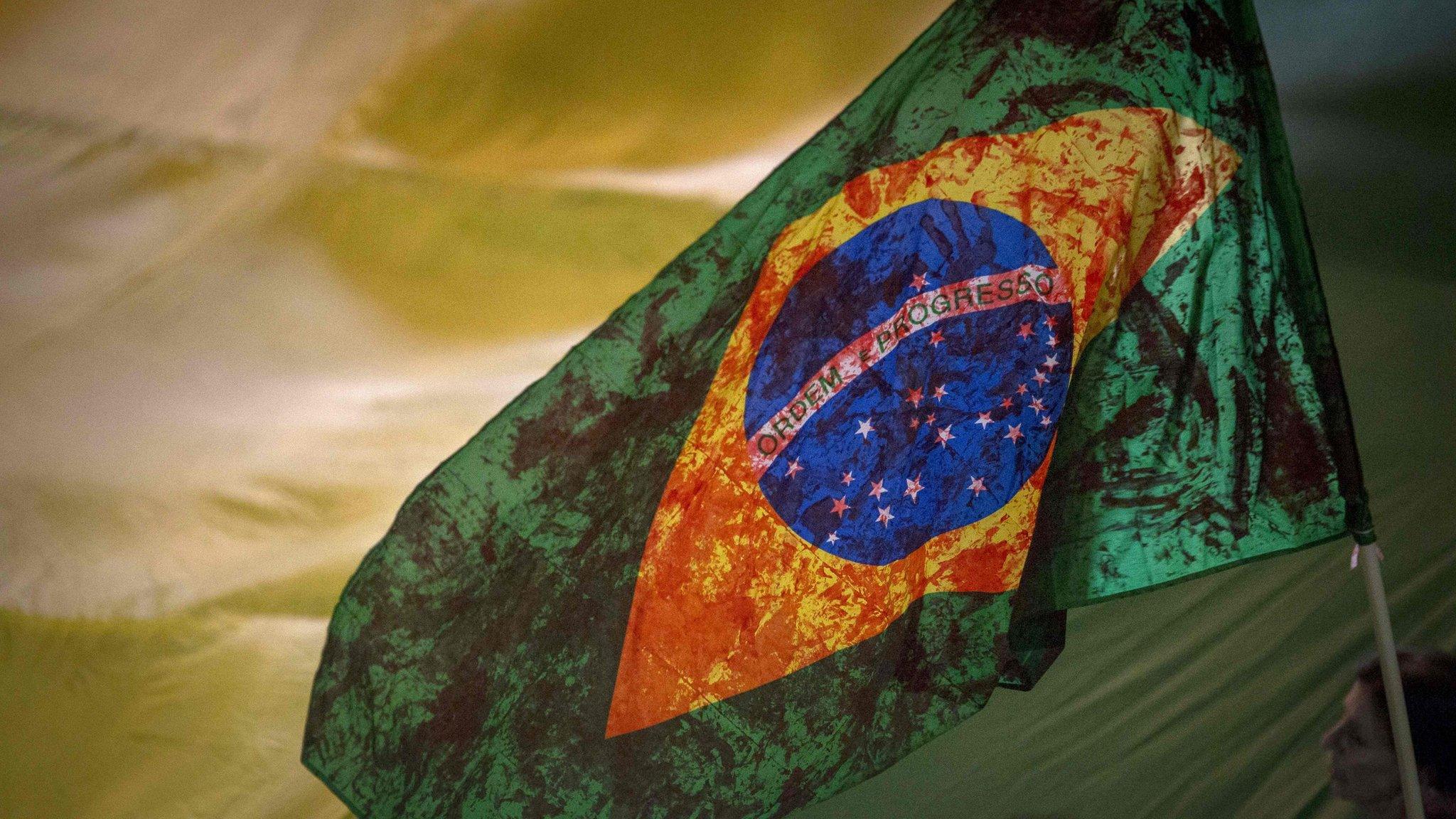Lula: Brazil's top court ruling could overturn corruption conviction
- Published
Lula spoke exclusively to the BBC from prison last month
A ruling by Brazil's top court could see one of jailed former President Luiz Inácio Lula da Silva's corruption convictions being overturned.
The Supreme Court ruled that defendants should be allowed to defend themselves after being cited in plea deals by witnesses also accused of corruption.
The decision could annul one of Lula's two convictions and send the case back to a pre-sentencing stage.
Lula has been sentenced to a total of 25 years in prison.
Operation Car Wash, an unprecedented corruption investigation initially centred on the state-run oil company Petrobras, uncovered billions of dollars of bribes and led to the convictions of dozens of high-profile business leaders and politicians.
Lula, who led Brazil between 2003 and 2010, has consistently denied all the accusations.
Far-right President Jair Bolsonaro was elected last year in a poll that Lula, a leftist politician who remains a popular figure in Brazil, was barred from joining because of one of the convictions.
Sergio Moro, the judge who oversaw the Car Wash investigation, became justice minister in the Bolsonaro government.
What did the Supreme Court decide?
Seven of the 11 members of the Supreme Court decided that defendants should have the chance to defend themselves after being cited in testimony obtained through plea-bargain deals by witnesses also accused of corruption.
On Tuesday, justices are expected to start debating whether or not the decision should be limited to future cases.
The ruling stems from a habeas corpus writ, external requested by a former Petrobras employee, and could impact about 30 sentences related to the Car Wash operation, which revealed corruption in the 13 years of Lula's Workers' Party in the presidency.
What are Lula's convictions?
Lula was jailed in April last year after being sentenced by Mr Moro to 12 years and one month in prison in 2017 for receiving a beachside apartment from an engineering company implicated in the Car Wash investigation.
In February, he was sentenced to a further 12 years and 11 months in prison after being found guilty of accepting bribes in the form of renovation work at a country house from construction companies.
He is appealing this conviction, and his team says the Supreme Court's decision could result in at least this sentencing being annulled.

President Bolsonaro made Sergio Moro his justice minister
Lula, who is awaiting trial in six other cases, argues that the charges against him are politically motivated.
His lawyers say leaked messages allegedly sent by Mr Moro while he was presiding over the Operation Car Wash appeared to make suggestions to prosecutors about the pace, focus and order of the anti-corruption investigations.
The messages, published by The Intercept website, appear to show Mr Moro asking the prosecutors to publish press releases criticising Lula's defence, and sharing investigative tips with them when he was legally obliged to remain impartial.
Mr Moro has denied improper conduct and criticised The Intercept for not naming their source.
Last month, Supreme Court Justice Gilmar Mendes told Reuters news agency he believed that Lula deserved a retrial, external, and that the investigation had become politicised.
Despite the leaking of the messages, Mr Moro and the Car Wash team continue to enjoy strong support among Brazilians. The investigation has recovered 14bn reais (£2.7bn; $3.4bn) of public money.
- Published12 September 2018

- Published8 April 2018
